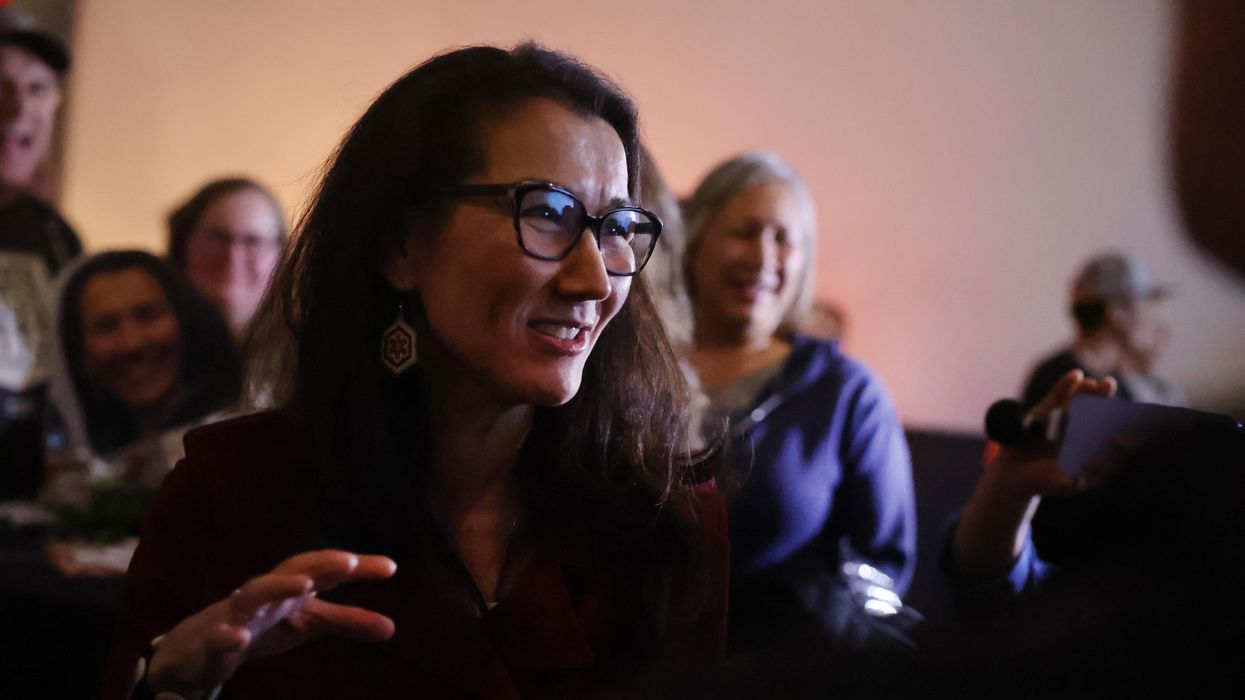Voters across America are warming up to the notion of an alternative election system, with the midterms resulting in expansion of ranked-choice voting. And RCV’s proponents head into Thanksgiving feeling good about the state of reform in America.
November voting saw RCV initiatives triumph in Nevada, Seattle and a number of other notable cities across America.
“We saw another good run on the ballot,” said Rob Richie, CEO of the election reform group FairVote. “We’re just doing our year end communication to supporters and I just genuinely feel really optimistic.”
In Nevada voters approved a ballot initiative proposing a change to ranked-choice voting for state and congressional elections (but not for presidential contests), with 52.8 percent in favor. However, the state requires such changes to go through a second round of approval, so there will be another vote in 2024. If that measure is adopted, it will also institute an open primary in which all candidates appear on one ballot with the five candidates who capture the most votes advancing to the RCV general election. The earliest RCV could be implemented in Nevada would be the 2026 midterm election.
In another two-part decision, Seattle voters were asked whether they would prefer ranked choice voting or approval voting, a system that allows voters to support as many votes as they prefer. A big majority (76 percent to 24 percent) answered that they would prefer RCV, but a second question asked Seattle voters whether they even want to make a change. The nearly complete totals show 51 percent opted to reform the city’s primary election system, although the results have yet to be certified.
Other cities – including Portland, Ore.; Portland, Maine; Ojai, Calif.; and Evanston, Ill. – also adopted RCV this year.
While local organizations were heavily involved in many of these campaigns, FairVote has been a leader at the national level. The nonpartisan organization advocates for ranked-choice voting and multimember representation (unless the current congressional system in which each House district has one lawmaker). The group hopes to see RCV implemented in 10 presidential primaries by 2024.
Richie, is “very optimistic” about the future of ranked-choice voting. In 1992, he deteremind RCV is the best way to mitigate a lack of representation in Congress and the growing polarization between the two-party system.
FairVote and its allies have had some other big wins heading into the 2022 elections. New York City approved a move to RCV for municipal elections in 2019, and that system debuted two years later.
Richie also pointed to Alaska, which became the second state to adopt RCV for federal and state elections in 2020. Voters in Alaska got to try out the system for the first time this year, and it led to notable outcomes, including divided government. Democrat Mary Peltola, won an RCV special election earlier this year to become the first Alaska Native elected to Congress. She is now waiting for the second round of counting to determine whether she will defeat former vice presidential candidate Sarah Palin a second time and earn a full term in the House.
Sen. Lisa Murkowski, a Republican, is also under 50 percent after the first round of counting but is expected to win reelection once the last place candidate is eliminated.
Richie noted that Alaska “will be governed by a bipartisan coalition” — an outcome that stemmed from RCV and its ability to “create incentives for the candidates to not be so driven by party labels but to reach beyond their base and make a case for themselves.”
Ranked-choice voting, also known as instant-runoff voting, is an alternative system in which voters rank multiple candidates by preference instead of voting for a singular candidate. In most elections across the country, winners of the election are the individuals who earn the most votes. However, RCV candidates only win if they get more than 50 percent of votes. If no candidates receive a majority, the candidate with the fewest is eliminated and their ballots will go to each voter’s second-choice. This continues until there is an outright winner.
The system had been in use long before New York and Alaska adopted it. It began gaining wider traction in 2016 when Maine made the switch for its gubernatorial, legislative and congressional elections.




















